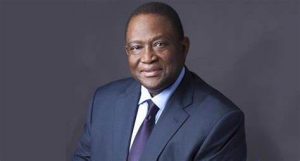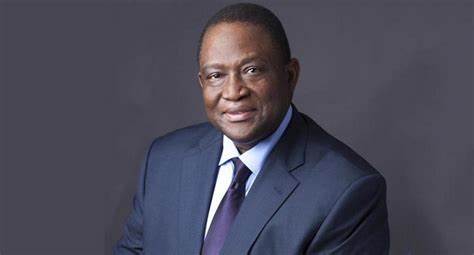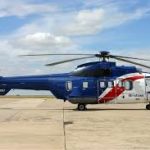
At the 2024 MRO Africa Conference held in Addis Ababa, Ethiopia, from April 23-25, aviation experts brainstormed on the challenges facing air travel in Africa, how to boost trade and tourism on the continent.
The stakeholders acknowledged that air transport as catalyst for economic development is the bedrock that would buoy and enhance trade and tourism; when there is free movement of people across nations with liberalised inter-state movement.
The stakeholders posited that the full implementation of African Continental Free Trade Area (AfCFTA) can be realised when there is easy movement of people in Africa without the hindrances of state boundaries, which means that there should be visa waivers or visa on arrival protocol among Africans and this would be possible through collaboration, partnerships and legislation by states.
Secretary General of African Airlines Association (AFRAA), Mr. Abdelrahmane Berthe, said the future of aviation in Africa remained bright because there are so many things to do, the level of traffic is still very small and only a few African citizens can afford air travel today.
“So, we need to create an environment to develop the traffic, the affordability of fares. That is why the single African Air Transport Market (SAATM) is important, also the African Continental Free Trade Area. If there is no activity between countries, it is difficult for an airline to open a route. And also, we are seeing still some visa restrictions between African countries. This also should be solved. And I think African airlines also are not cooperating much. We have commercial agreement. This is something which needs to be changed,” he said.
The AFRAA Secretary General said Nigeria remained a big market, which should position itself well to fully exploit its potential in air travel, recognizing the fact that it has the highest number of indigenous travellers in Africa.
“Nigeria is a big market. We have some member airlines from Nigeria. So today if you look at the continent, in aviation, we have activities in east, southern regions, and western/central sub-region weak. Only Nigeria has a strong domestic market and intercontinental market. I hope to see Nigeria having an airline, which will also cover the continent like the Ethiopian Airlines is doing today. You see the Ethiopian Airlines global operation out of Africa and within Africa. So Nigeria has the potential and I really hope that from the Western Central region, we can have a hub in Nigeria to connect Africa as well, this will be important,” Berthe said.
On aircraft Maintenance, Repair and Overhaul (MRO), he said MRO remained very important, noting that there are two critical elements regarding the cost of operation, the fuel and maintenance.
“We know that in Africa, fuel costs are very, very high. Now we are seeing also maintenance becoming high cost because of the supply chain and the logistics, restrictions and also customs sometimes in some countries. So these challenges are making it difficult to develop MRO activities in the continent. However, if we see that we expect the traffic to double by 2042, it means that we have more aircraft in operation, more aircraft means more maintenance, so we really need also to have MRO facilities,” he said.
Berthe said aircraft financing had been a big challenge for Africa airlines, especially small, upstart carriers. However, he disclosed that AFRAA and African Development Bank were collaborating to create a platform that could facilitate easy access to funding by African airlines.
“AFRAA is discussing with African Development Bank to see how they can support the project. You know, it’s simple. If you want money to buy a house, the bank will see if you can service the loan for the time. It is the same thing. So they need to really look at the management, the business plan of the airline, to get confidence that the airlines can operate the aircraft and fund the loan. There are some discussions around it. It is a very critical question. And we hope that we will find a solution as soon as possible. Because you are right, because if I said we will have more aircraft in operation, how do we get this aircraft? We need finance,” he said.
On the barriers to free movement and the realization of common airspace for Africa, which is the Yamoussoukro Declaration (YD), the AFRAA Secretary General said that even the countries that have signed to SAATM and are also signatories to YD are still engaging in protectionism, not allowing other African airlines to freely operate into their airspace.
“We have today 38 seats signed to a Single African Air Transport Market last month. But all of them have not complied, maybe 10, some will sign, they will continue to deny even third or fourth traffic rights. I am just not talking about fifth freedom traffic rights. This is a concern for us. So far we have been trying to do advocacy, but even advocacy is not working very well. Today there are two things we are working on; to put in place what we call the dispute settlement mechanism at the AU level which will authorise an airline or a state to go in dispute against a state who is denying a traffic right. If you sign and you are denying, you can be taken to the court and also there will be some sanctions around it. In parallel to that, it is also important to reach the high-level political decisions leaders, because so far we are talking to ministers, is not working very well. So now we feel as stakeholders, we need to package something and go higher at the level of prime minister or even head of state. If the instructions come from the head of state, we hope that state will really implement it,” he further said.
The Group Chief Executive Officer of Ethiopian Airlines, Ato Mesfin Tasew, decried a situation where some countries and airlines are unwilling to work with their fellow African airlines, but rather, prefer to work with European carriers, harping on fear of domination by another African carrier.
He said what would enhance the growth of African airlines and increase the market share of the regional carriers is African airlines working together. He cited example with Ethiopian Airlines partnership with Asky and recalled how Ethiopian helped establish Asky and today it is the best airline in West Africa, operating to 29 cities in West and Central Africa.






